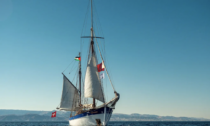
At the ‘last coral refuge in the world,’ an European-Arab-Israeli research team aims to discover why Gulf of Eilat reefs have survived rising temperatures better than others.
A research expedition of European, Arab and Israeli scientists will sail from Eilat on Tuesday to study the characteristics of the local coral reefs that have allowed it to survive the rise in sea water temperatures. The expedition follows several studies that have found the coral reefs in the Gulf of Eilat seem to show an unusual degree of tolerance to global warming at a time when other reefs around the world are facing extinction.
The goal of the research is to understand the mechanisms the corals use to withstand bleaching. It will also study the unique genetic structure of the corals in the Red Sea, in the hope that it could be reproduced in other places where the corals have not survived. The scientists also hope to develop means for protecting and preserving the entire Red Sea ecological system, which scientists call the “last refuge for corals on Earth.”
Recent studies show that over the past 30 to 40 years about half of the corals in the world have disappeared, and by 2050 only 10 percent of those that lived in the oceans 40 years ago will survive. The rise in sea temperatures and the acidification of the oceans, which are caused by increased levels of human-generated carbon dioxide in the atmosphere, have led to their extinction. The reefs are the richest habitats on the planet – thousands of species of animals are dependent on them, while hundreds of millions of people that depend on them economically.
The scientists think that the reefs in the Gulf of Eilat are part of a unique group of reefs with exceptional resilience to temperature rise that exist along the Red Sea coast.
The researchers realized that they would have to conduct their studies along the entire coast of the Red Sea, all the way to the Bab el-Mandeb Strait, to understand about the types of coral reefs and the relations between them. To do so, they require unusual cooperation between Israel and the seven Arab countries that share the Red Sea coast with Israel – Egypt, Eritrea, Jordan, Saudi Arabia, Sudan, Yemen and Djibouti.
To overcome the political difficulties, two years ago, the Transnational Red Sea Center, was established in Berne, Switzerland, at the initiative of the Swiss government’s Ecole Polytechnique Federale in Lausanne (EPFL), which provides the neutral scientific umbrella for Israeli-Arab-European cooperation.
- Red Sea corals laugh off global warming but suffer in cold snaps
- Invasive species spreading off Israel’s coast, heralding ecological hazard
- The Mediterranean is heating up, dealing a devastating blow to the region’s biodiversity
The center’s first research expedition left Jordan last week and arrived in Eilat, from where a team of Israeli, Sudanese, Swiss and German scientists will sail to Sudan to examine the reefs along its shores. Another three expeditions are planned for the years 2022 through 2024, along the 4,500-kilometer (2,800-mile) Red Sea coast of the eight countries. The Israeli scientists are expected to work alongside those of all the Arab countries, as well as Europeans, on these trips – with the support of the Swiss and Israeli foreign ministries.
The Israeli side of the research will be led by Prof. Maoz Fine of Bar-Ilan University and the Interuniversity Institute for Marine Sciences in Eilat.
“All over the world, we are losing the reefs because of the rise in sea temperatures by a degree or two. In the Gulf of Eilat, the water temperature has already risen a few times, but in an unprecedented manner no bleaching has occurred among the corals. According to our experiments and research, these corals can handle a rise of about another five degrees, up to 32.5 degrees [Celsius, 90.5 degrees Fahrenheit], the temperature expected in the northern Red Sea maybe in a few decades. There is nothing like this figure anywhere in the world,” said Fine.
“To protect these reefs, which are resistant to global changes but are sensitive to local disturbances such as pollution, we will have to work with our neighbors and work together to protect this joint resource, and we hope that the new research will grant us and the world much more essential information,” he said.
The research is critical for the livelihoods of millions of people, Jean-Daniel Ruch, the Swiss ambassador to Israel, told Haaretz. It is a clear ecological and economic interest of all the cooperating countries, so his country was happy to provide a neutral framework to promote cooperation, he said. The hope is that the research will help the world boost resilience to global warming by saving coral reefs in Australia and many other places, he added.
Ruch also held out the possibility that the war against the “shared enemy” of global climate crisis would create new alliances between countries in the region that have fought each other in the past. The Middle East is one of the regions that will suffer the most damage from global warming, so cooperation will be needed to deal with the economic and ecological challenges, he said.
In spite of the resilience of the coral reefs to the rise in sea temperatures, they are not immune to human-created hazards, such as oil pollution, fishing and sewage, which Fine said still represented a danger to their continued existence. For example, the agreement on transporting oil from the Gulf to Europe via Israel, which was signed with the Europe Asia Pipeline Company, has aroused harsh criticism over the risks it creates for the coral reefs and the entire ecological system in the Red Sea.










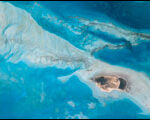
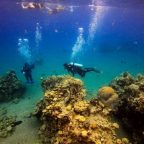
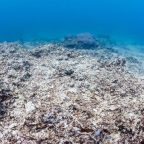
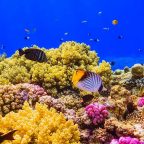

Social Profiles